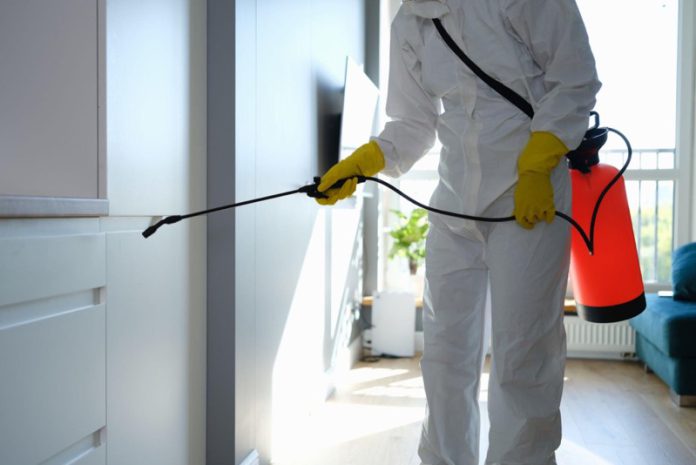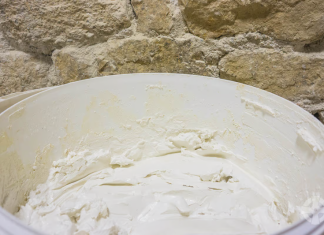There are many considerations to make when choosing what type of pest control is the best fit for your home or business. You might be surprised to learn just how many different types of pest control solutions there are available. Oftentimes, the solution for pest control depends on the type of unwanted pests a residential or commercial property is dealing with. Infestations are almost always different. There can be an issue with bed bugs, ants, cockroaches, rats, etc. How can you treat these effectively? The long-running solution has been to use chemicals.
Chemical pesticides have a rich history. In fact, there are scientists that believe that chemical pesticides have actually been in existence for over 2,000 years. Fumigation for pests has always been a priority as most humans do not want to live in the same area as ants, roaches, and other unwanted pests. And more recently, synthetic pesticides first began in the 1930s. It became more widespread after World War II. Controlling pests was important to farming and quickly became something we valued for homes and businesses. Is chemical pest control right for you in today’s world? Or is there a better solution with organic pest control? Let’s take a look.
Fungicides
There are several advantages to using fungicides over other types of pest control solutions. They control mycotoxin-producing pathogens and they have a great value per cost. However, there is a significant downside to this type of pest control as they only kill fungus and fungal spores. You wouldn’t normally see fungicides used for killing pests that we are typically trying to get rid of like ants, roaches, termites, or moths. This type of chemical pesticide is typically found in agricultural uses, not residential ones.
Insecticides
Are you familiar with insecticides? Most people are, as it is the most commonly seen in commercial use. Insecticides treat a wide range of pests at any life stage. Insecticides can be used inside the home as well as in agriculture. They have two different classifications with and without residual effects. This means that some insecticides will be effective without coming in contact with the insects, while others will need to have contact. This isn’t the only way to classify pesticides. Other ways that insecticides can be classified as repellent and non-repellent. There are many advantages to using this type of insecticide, as it is highly effective.
Rodenticides
Need to get rid of rats or mice in your home? There might be nothing scarier than dealing with rodents. A horrible problem associated with these pests is diseases. Rats carry almost 35 different diseases at any given time. This means if you’re bitten by a rat, you could have the potential for health hazards. Panther Pest Control mentions, “Generally, rodenticides are considered to be a threat if consumed by other animals but that is a serious concern only if huge amounts of the chemical pesticide is consumed. Secondary poisoning may occur if a rodent that has died from poisoning is consumed by a pet such as a cat. This only happens when an anticoagulant rodent bait has been used for the rodent infestation. Such anticoagulants have a residual effect, and the poison is stored inside the livers of mice and rats. When a predator eats the dead rodent, the poison from the liver gets spread inside the system of the other animal and second poisoning is observed.”
Chemical VS. Organic Solutions
Okay, so which is actually a better choice? Going organic or choosing chemicals. Typically the cost is an issue for homeowners. Here, chemical pesticides are typically the more affordable choice. Synthetic chemical pest control is about half the cost. Unlike organic pest control, which can waver over time, chemical pesticides are the opposite. They can actually become more effective as time goes on as they not only kill pests but deter them. What about quickness? Which actually works faster? Wanting to get rid of pests quickly is what most homeowners want, and again chemical pest control is how you’ll achieve those results. We commend considering chemical pest control if you’re looking for a way to get rid of pests and keep them away.
Final Thoughts
Gecko Pest Control is the leading pest controller in the Chico area. Offering a wide range of pest control solutions, including both chemical and organic. In fact, they offer hybrid solutions that implement customized approaches for customers to ensure the best results possible for eliminating and preventing pest infestations. With residential and commercial solutions available, customers are able to treat their homes and businesses for a wide range of pest issues. Some of the active infestations that can be treated with chemical pest control include ants, bed bugs, cockroaches, flies, and termites.
You might be worried about the use of chemicals in your home. However, putting down chemicals in the home has gotten down to a science. There are virtually no fumes or smells, and the pesticides aren’t harmful to pets and humans. When you want to truly affect pest control, chemicals are truly the best approach. While you can certainly use organic pest control, and many choose this option, there are downsides to organic. It has been proven that organic pest control isn’t typically as effective in the long term as chemical pesticides. Another consideration you might have about organic pest control is whether or not chemical pest control has negative effects on the environment. This is where organic pest solutions using things like essential oils and natural remedies really shine.
So should you use chemicals in your home, or should you be strictly organic? It really depends on how you feel about chemicals. If you’re the type that uses bleach for cleaning, toilet bowl cleaner, sanitizer wipes, etc., it might not be the worst thing in the world to go with chemicals in your home. However, there is a concern about the application. When applied properly, chemicals for pest deterrents are considered safe. However, we do recommend that you work with a professional to ensure the safety of your home or even your business.















